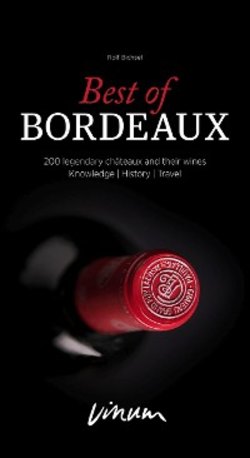Читать книгу Best of Bordeaux - Rolf Bichsel - Страница 16
Оглавление16
History Bordeaux melting pot
1924 it remained stuck at just 1.5 degrees. However, even the greatest climatic up-
heavals can be tolerated whenever there are riches to be made. Mankind peered
at Bordeaux's legendary terroirs like Moses peered at God in Mann's trilogy ‘Jo-
seph and His Brothers', and thus helped them into existence. Resourceful minds
adapted the terroir to their needs and people also adapted to suit the terrior (or
less concisely: after Armenians or Greeks or Mesopotamians or whoever accus-
tomed the vine – a climbing plant from shaded forests – to the alkaline clay and
limestone soils and the burning sun and persuaded it to produce grapes which
could be made into wine, the Gallo-Romans who had already begun making wine
on the right bank but also wanted to produce it on this side of the river, adapted
the plants to the acidic soils and cheerfully damp climate on the left bank of the
Garonne). They therefore created terroir in its broadest sense, terroir consisting of
time and space, terroir made from history and nature, terroir, inextricably linked
to humans and their destiny.
The Bordeaux melting pot
More than a single lifetime would be required to investigate the thousand-
year family tree of a thoroughbred Bordelais. The Bituriges, who according to
legend founded Burdigala and introduced Vitis Biturica (the first ancestor of
Cabernet), were not the only contributors to the archetypal Bordeaux blood-
line. Novem Populi was the name of a south-western Roman province where
nine peoples were supposed to have settled. In fact it was not nine but nearly
thirty tribes who accepted Roman rule more or less willingly and with it, almost
inevitably, Roman genes: love is blind, not pure-bred. Over the centuries they
were joined by Visigoths and Saracens, Britons (themselves a mixture of Angles,
Saxons and Normans), followed by the Jews, Navarrese and Lombards, along
with the Dutch, Irish and Scots, not forgetting the Hanseatic and Baltic peoples
as well as South Sea Islanders, North Africans, Senegalese, Italians, Spaniards
and Portuguese: for 2,000 years Bordeaux has been a trade city, as cosmopolitan
as Hong Kong, Rio and New York put together, and has long been a magnet for
anyone in search of wealth and success.
Bordeaux has never got anywhere in military terms – people dominated here
not by the sword but rather with plough and sickle or abacus and stylus. The Ro-
mans never had a garrison here, remaining in Blavia (Blaye) on the right bank of
the Gironde. Citizens adapted to conquerors in public and were decadent in se-
cret. The dark chapter of the Second World War with its submarine port, depor-
tation station and Maurice Papon, Secretary General of the Gironde from 1942
to 1944 who was convicted of being an accomplice to crimes against humanity
in a sensational trial in 1998, and of the world of wine which disintegrated into
collaborators, emigrants and silent victims and which suffered from a severe
